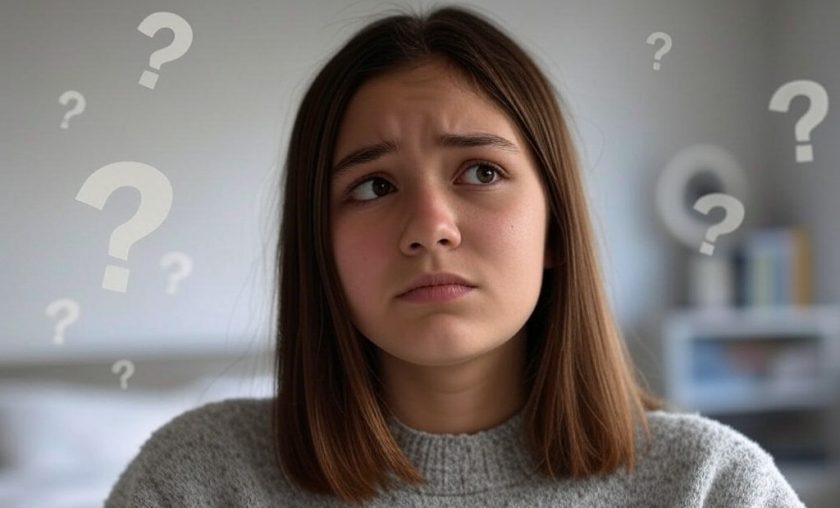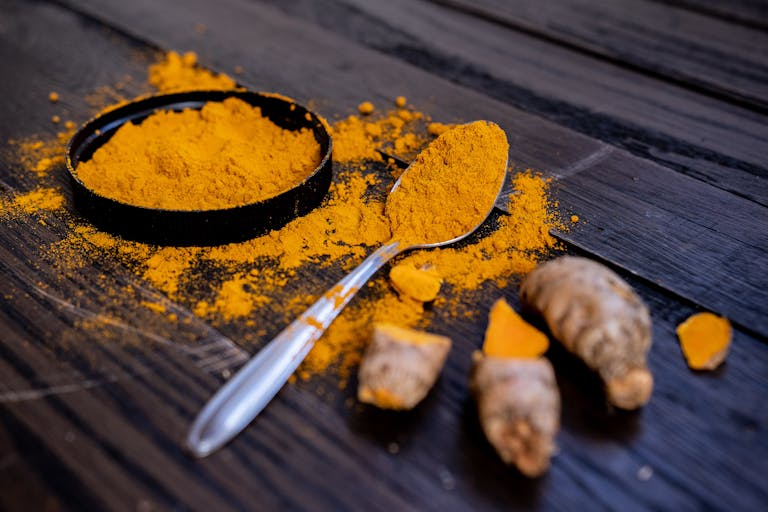Let’s talk about something that’s probably on your mind but feels awkward to ask about – your first period. You know what? I remember sitting in my 7th-grade math class when it happened to me, completely unprepared and wondering if everything I was experiencing was normal. Spoiler alert: most of it was! Today, I’m here to share everything I wish someone had told me back then, along with expert-backed information to help you navigate this important milestone with confidence.
Physical Signs Your First Period Is Coming
Let me share something that might surprise you – one of the first signs of puberty isn’t what most people expect. It’s actually your feet and hands growing! I noticed this myself when my shoes suddenly felt tight, and at the time, I had no idea this was related to puberty. Now I know this growth spurt is often the very first sign that your body is beginning its journey toward menstruation.
Your body gives you several hints that your first period is approaching, and knowing these signs can help you feel more prepared. Think of it like your body sending you little messages – the more you understand these messages, the more confident you’ll feel about the changes ahead.
One of the earliest changes you’ll likely notice is breast development, which usually starts between ages 8-13. You might feel a small, sometimes tender bump under one or both nipples. These “breast buds” are completely normal – they’re just your body’s way of starting the development process. And here’s something that often worries people but shouldn’t: it’s totally normal if one side develops faster than the other!
Another sign that often catches people by surprise is vaginal discharge. This clear or whitish fluid typically starts about 6-12 months before your first period. It’s actually your body’s clever way of keeping things clean and healthy down there. Back when I was younger, no one talked about this normal change, which made it seem scary when it didn’t need to be.
You might also notice some changes in your skin and emotions. That first pimple might show up, marking another sign that your hormones are preparing your body for menstruation. Your emotions might feel more intense too – things that wouldn’t normally bother you might suddenly feel like a bigger deal. These changes are all part of your body’s natural preparation process.
What Does a First Period Actually Feel Like?
When my first period arrived during that math class, I remember feeling a mix of panic and confusion. Was that warm sensation normal? What about the cramping that felt like a really bad stomach ache? Let me break it down for you in a way I wish someone had explained it to me.
Your first period might feel like a warm, damp sensation in your underwear. The blood might be bright red, dark red, or even brownish – all of these colors are normal! Some people barely notice their first period, while others might experience some cramping or discomfort. For me, it felt like a mild stomach ache combined with that feeling you get when you think you’ve sat in something wet.
The amount of blood can vary too. Your first period might be very light (just a few drops) or moderate, and it typically lasts anywhere from 2-7 days. Mine lasted for 5 days, but everyone’s experience is different. The flow usually starts lighter, gets heavier for a day or two, then gradually becomes lighter again.
Here’s something I really wish I’d known: that first period might not look like what you expect. Sometimes it starts as brown spotting rather than the bright red you might be anticipating. That’s completely normal! It’s just older blood that took a bit longer to make its way out.
Common First Period Symptoms Explained
Understanding what happens in your body during menstruation can make the whole experience feel less mysterious and more manageable. Let’s break down the most common symptoms you might experience during your period.
Cramps are typically the first symptom that comes to mind when thinking about periods. They can range from mild muscle tightness to stronger waves of discomfort in your lower abdomen. What’s actually happening is your uterus contracting to help release its lining – think of it like a gentle squeeze to help everything move along. The intensity varies for each person, and both mild and stronger cramps are completely normal experiences.
Energy levels often fluctuate during menstruation. Your body is doing important work during this time, which can affect how energetic you feel throughout the day. Some experience noticeable fatigue, while others maintain their usual energy levels. Both experiences are perfectly normal variations of how bodies handle this monthly process.
Food cravings often make an appearance in the days leading up to menstruation. These sudden desires for specific foods – especially sweets or salty snacks – are tied to hormonal changes happening in your body. These cravings can serve as one of nature’s subtle hints that your period is approaching, though not everyone experiences them.
Breast tenderness is another common symptom, where your breasts might feel sore or sensitive to touch for a few days before or during your period. This discomfort usually subsides after a few days, and wearing comfortable, supportive clothing during this time can help manage any sensitivity.
Backaches frequently accompany menstruation, often partnering with cramps to create discomfort in your lower back. Simple movements like gentle stretching or short walks can help ease this tension. If back pain becomes severe enough to interfere with daily activities, it’s worth discussing with a healthcare provider.
These symptoms can vary significantly from person to person, and they might even change from month to month. The key is learning to recognize your own body’s patterns and understanding that your experience is uniquely yours. Whether you experience several symptoms or just a few, your body is following its own normal, healthy rhythm.
Your Biggest “Is This Normal?” Questions Answered
Let’s tackle those questions you might be too embarrassed to ask anyone else. Trust me, I had ALL of these questions too!
“My period is super irregular – is that normal?”
Absolutely! In the first couple of years, your period might be as unpredictable as cafeteria food. Mine would show up every 24 days one time, then 35 days the next. Your body is still figuring things out, like a new driver learning to navigate. It usually takes about two years for periods to settle into a more regular pattern.
“What’s the deal with spotting?”
Spotting is like your period’s dress rehearsal – light bleeding that might happen between periods or before your first real period starts. I remember panicking about some light brown spots in my underwear months before my actual period began. This is totally normal and might happen on and off as your body prepares for regular menstruation.
“How much pain is normal?”
Some period discomfort is common, but pain that interferes with your daily life isn’t normal and shouldn’t be ignored. If you can manage your cramps with basic remedies like a heating pad1 or over-the-counter pain relief, that’s typical. However, if your pain keeps you from attending school, makes you feel sick, or doesn’t improve with regular pain medication, it’s important to talk to a healthcare provider. Don’t let anyone tell you to just “tough it out” – severe period pain can often be treated, and you deserve to get the help you need.
When to Talk to Someone About Your Symptoms
Look, I know talking about period stuff can feel mortifying. I spent way too long suffering in silence because I was too embarrassed to speak up. But here’s what I’ve learned: getting help when you need it isn’t just okay – it’s essential.
If you’re experiencing any of these situations, it’s time to talk to a trusted adult:
- Pain that keeps you from normal activities
- Extremely heavy bleeding (changing pads/tampons every hour)
- Periods that last longer than 7 days
- Severe dizziness or feeling faint
- Unusual clots larger than a quarter
Your school nurse can be an amazing resource – they’ve literally heard it all before! I wish I’d known that when I was stuck in class without supplies. They usually keep emergency period products and can offer private help when you need it.
First Period Survival Guide
Time for the practical stuff! Let’s put together your period emergency kit – think of it as your personal comfort toolkit. Here’s what I recommend keeping in your backpack:
- 2-3 pads or tampons (even before your first period – you might help a friend in need!)
- A clean pair of underwear
- Dark-colored shorts or leggings
- Portable hand soap and wet wipes
- Pain reliever (if your school allows it)
- Small heat pack or heating pad
- Dark chocolate (trust me on this one!)
For tracking your cycle, start keeping a record as soon as you get your first period – this will help you predict future periods and recognize patterns in your symptoms. You can use whatever method works best for you. A simple calendar where you mark your period days works great – you can note symptoms and patterns right there on paper. There are also many period tracking apps available today that offer similar functionality in digital form. The important thing isn’t how you track, but that you do track consistently to understand your unique cycle.
Remember: every body is different, and that’s perfectly okay! Your period might not be exactly like your friends’ periods, and that’s normal too. The most important thing is to listen to your body and take care of yourself.
Most importantly, remember you’re not alone in this journey. If you have questions or concerns – especially if you feel like you don’t have anyone to talk to – please reach out. Whether it’s through leaving a comment below, sending me a message, or talking to another trusted adult, your questions and concerns matter. Sometimes the simple act of asking a question can help you realize that what you’re experiencing is completely normal, or help you get support if something needs attention. Every question is valid, and every concern deserves to be heard.
Conclusion
Your first period is a significant milestone, and it’s natural to have questions and uncertainties along the way. Remember that every body is different, and your period journey is uniquely yours. While some days might feel challenging, you have the strength to handle this new phase of life – and you don’t have to handle it alone.
Keep this guide handy, trust your instincts about your body’s needs, and never hesitate to speak up when something doesn’t feel right. Whether you’re wondering if something is normal, need advice about managing symptoms, or just want to talk to someone who understands – reach out. You can leave your questions in the comments below or send me a private message. Creating a supportive space for these conversations is exactly why I’m here.
- Full disclosure: This post may contain affiliate links. If you make a purchase through these links, I may earn a small commission at no additional cost to you. Using these links helps support this site and allows me to continue creating helpful content for our community. I only recommend products I genuinely believe in and use myself. Thank you for your support! ↩︎







